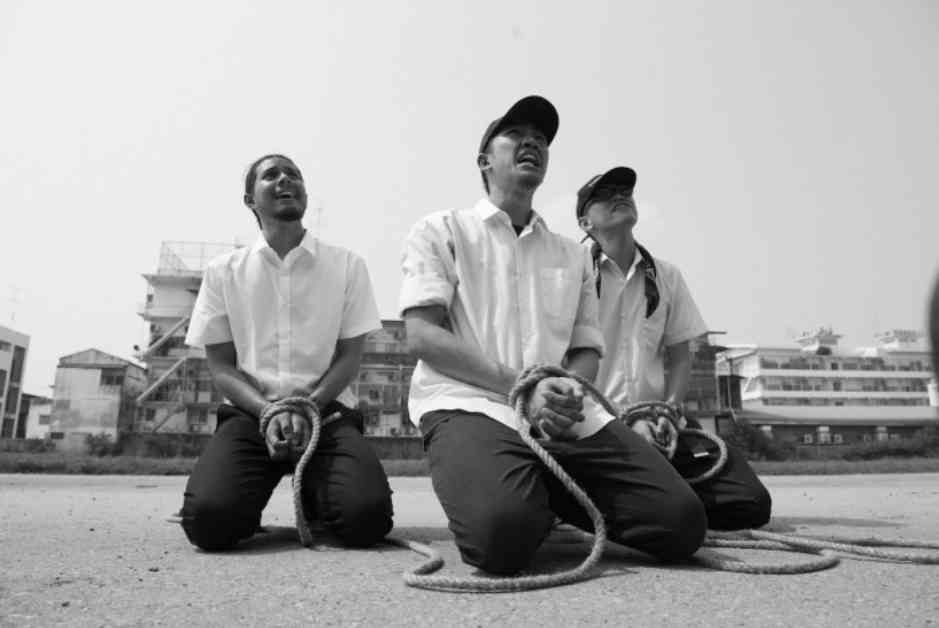The Ministry of Higher Education, Science, Research and Innovation is taking action to address the issue of school hazing after a disturbing incident was brought to light by a social media activist. The incident involved a first-year engineering student who was seriously injured during a hazing ritual at Rajamangala University of Technology Suvarnabhumi. The ministry has pledged to end violence in educational institutions and is fully cooperating with the police in their investigation.
The student’s parents filed a complaint with the police after their son, a 20-year-old freshman, was assaulted by a group of students on the school’s Nonthaburi campus. The attack occurred after the student requested to leave the hazing activity, and his father was also reportedly assaulted during the incident. The university management has been urged to suspend all students involved in the violence and to take appropriate action if they are found to have violated university regulations.
Police have reviewed surveillance camera footage and have identified all the suspects involved in the incident. Warrants for their arrest will be issued soon as further interviews with the victim and his parents are conducted, along with obtaining medical records. The university has been fully cooperative with the investigation, and the perpetrators will face consequences for their actions.
In response to the incident, Kritsana Jirasarnsawat, the deputy dean of the Faculty of Engineering and Architecture, emphasized that the university does not condone any form of hazing activities and will take drastic action against the attackers. This incident sheds light on the dangers of hazing rituals and the need for stricter regulations to prevent such violence in educational institutions.
Addressing the Issue of Hazing
Hazing rituals have long been a part of school culture in Thailand, with seniors often engaging in acts of bullying and humiliation towards freshmen. These rituals, often disguised as traditions or team-building activities, can have serious consequences and put students at risk of physical and emotional harm. The recent incident at Rajamangala University of Technology Suvarnabhumi highlights the urgent need to address the issue of hazing and implement measures to protect students from such violence.
The Ministry of Higher Education, Science, Research and Innovation has taken a strong stance against hazing and has vowed to work with law enforcement to ensure that those responsible for the incident are held accountable. By cooperating with the police investigation and taking swift action against the perpetrators, the ministry is sending a clear message that violence in educational institutions will not be tolerated.
Impact of Hazing on Students
Hazing rituals can have a profound impact on students, both physically and mentally. The trauma caused by such acts of violence can lead to long-lasting effects on the victims, affecting their academic performance, mental health, and overall well-being. By addressing the issue of hazing and implementing measures to prevent such incidents, educational institutions can create a safer and more supportive environment for all students.
The recent incident at Rajamangala University of Technology Suvarnabhumi serves as a stark reminder of the dangers of hazing and the need for schools to take proactive steps to protect their students. By raising awareness about the harmful effects of hazing and promoting a culture of respect and empathy, educational institutions can help prevent future incidents and create a more inclusive and nurturing learning environment.
Preventing Future Incidents
To prevent future incidents of hazing, it is essential for schools to have clear policies and guidelines in place that explicitly prohibit such activities. Educational institutions should also provide training and education to students and staff about the dangers of hazing and the importance of fostering a culture of respect and inclusion. By promoting positive values and behaviors, schools can help create a safer and more supportive environment for all students.
Additionally, schools should have mechanisms in place for reporting incidents of hazing and providing support to victims. Students should feel empowered to speak out against hazing and seek help if they are subjected to any form of violence or abuse. By creating a culture of transparency and accountability, schools can work towards eradicating hazing and ensuring the safety and well-being of all students.
In conclusion, the recent hazing incident at Rajamangala University of Technology Suvarnabhumi has sparked a national conversation about the need to address the issue of violence in educational institutions. By taking swift action against the perpetrators and implementing measures to prevent future incidents, the Ministry of Higher Education, Science, Research and Innovation is sending a strong message that hazing will not be tolerated. It is crucial for schools to prioritize the safety and well-being of their students and to create a supportive and inclusive environment where all students can thrive.




















